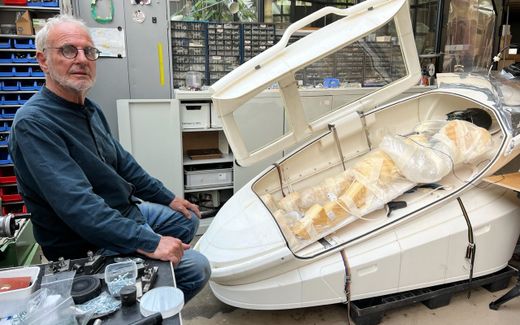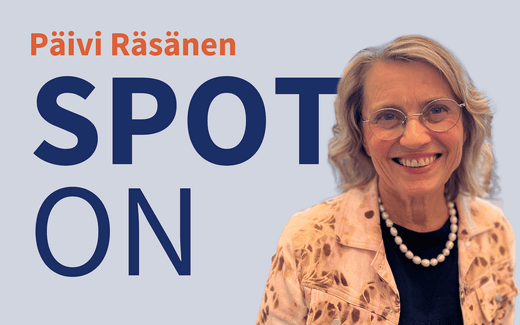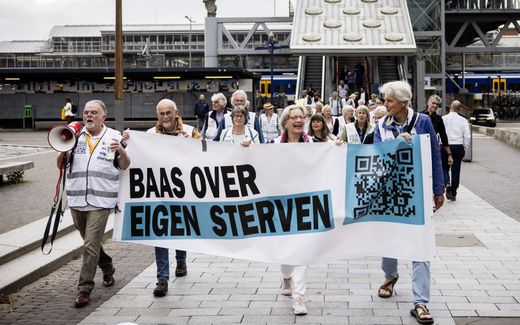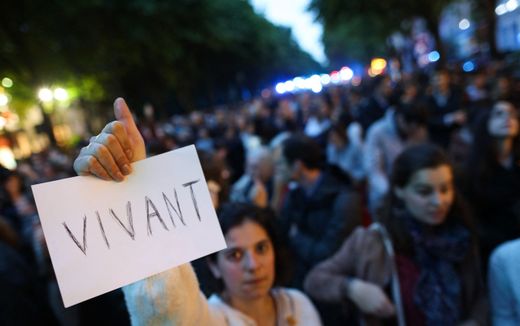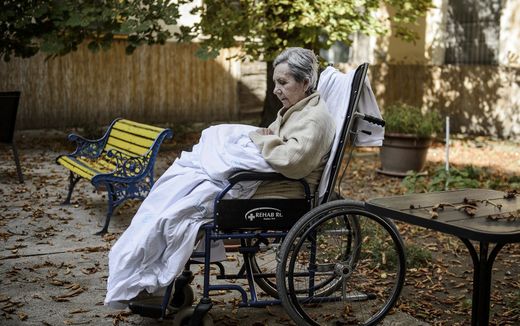Europe is moving towards an always freer euthanasia
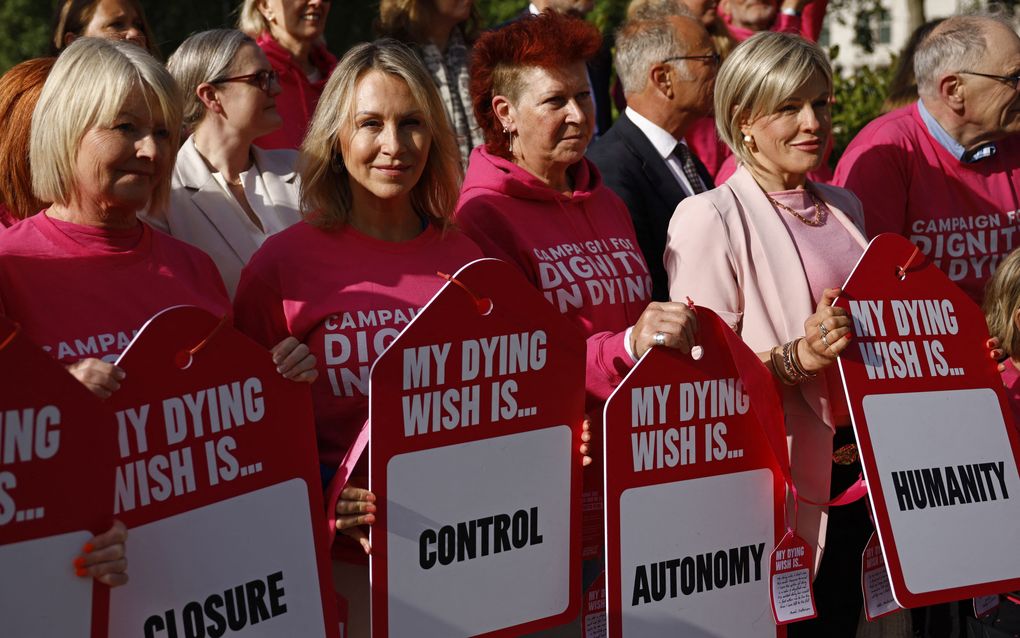
Campaigners in support of assisted dying hold placards outside of The Palace of Westminster in London, United Kingdom. Amendments in the UK's Terminally Ill Adults Bill have been in discussion for some time. Photo AFP, Benjamin Cremel
European Union
Many are confronted with euthanasia when a loved one wants to "pull the plug", or their family must accept a death wish. Euthanasia and assisted suicide are currently popular topics within European countries right now.
Stay up to date with Christian news in Europe? Sign up for CNE's newsletter.
States such as France and the UK may pass legislation to approve it, perhaps this year. Other countries are either currently revisiting their existing euthanasia laws, or their populations are pushing for national approval. In recent weeks, quite a few countries came to the news with plans to either legalise euthanasia or widen legal access to it.
France
The French government's lower house (National Assembly) passed a bill in favour of "assisted suicide" this year on 27 May, The Guardian reported. It has yet to go to the Upper House (the Senate) and undergo a second reading by the National Assembly.
The bill would allow patients who are "suffering from "constant, unbearable physical or psychological suffering" to be given lethal medication.
Healthcare professionals can prescribe this to patients, which can be taken at home or in a healthcare facility. The patients would first need the approval of medical professionals, and they must be cognitively aware of their decision.
France's lower house has also backed a bill that allows "a right" to palliative care in "specialist end-of-life institutions", The Guardian report also says.
Passive euthanasia is currently allowed, which involves the ability to turn off life support.
Although the bill was proposed by the French government last year, it was put on hold due to the dissolution of its government, according to RFI.
The legislation has been met with opposition by both doctors and religious leaders. Approximately eleven bishops from the Paris region have expressed their opposition to the legislation by writing an open letter. They warned in the Nederlands Dagblad that assistance in providing a "hasty death is not a solution" and that an "infinitely dangerous and deadly slope" is coming if the French government passes the bill.
A study revealed that at least 80 per cent of healthcare professionals would not prescribe or administer lethal medication or injection. Around 60-70 per cent of palliative care professionals are against the proposed law, according to research by the French Palliative Care Association which was published in France24. However, 60-70 per cent of doctors who work in fields such as anesthesiology or cardiology would approve the measure, Jean-François Delfraissy, President of the French National Consultative Ethics Committee, says to Public Sénat, which was also cited in France24.
Belgium
Belgium is looking to add dementia patients to its 23-year-old euthanasia law. Christian Daily reports that the amendment will allow dementia patients to be euthanised if they sign a "Declaration of Intent" and are "mentally competent." They can review their plans to die through their physician, although this is not required.
Belgium approved euthanasia to be performed under certain conditions in 2002. At least 37,606 people have died through euthanasia since that time. Over 70 per cent were 70 or older, while over 40 per cent were over 80 years old.
Suicide tourism
Suicide tourism has become a growing trend in EU states that have legalised assisted suicide for decades. Assisted suicide, but not euthanasia, has been legal in Switzerland since the early 1940s, and it was one of the first in the world to permit such a practice. CNE previously reported on the suicide capsule "Sarco" that was initially released in 2021 but can be loaned out by the organisation, The Last Resort for free.
No doctor's consent is required, but a psychiatric assessment is needed before using it. The capsule uses nitrogen gas, which depletes oxygen levels, causing a quick and peaceful death. Challenges remain as the legal processes for using such devices are getting simpler. The Swiss government is considering tightening regulations involving assisted suicide, according to a post by Last Resort.
Those who support the changes believe they would allow patients more freedom of choice, even if they lose the ability to state their wishes. Physicians can still opt out if the request goes against their beliefs. Some members of the Open Flemish Liberals and Democrats believe that the amendment would allow the patient more choice in what "unbearable suffering" is, as the current laws restrict those who lose their decision-making processes. At the moment, a patient can only request euthanasia if it is stated on a living will.
The proposal has received pushback from medical professionals and religious leaders, who have cited moral and ethical concerns. Belgian neurologist Eric Salmon says that dementia patients can still be capable of feeling love, and their suffering is not always severe. MP Frieda Gijbels believes that the "fear of suffering rather than suffering itself" may be behind most requests for euthanasia, they said to IMABE, which was quoted in Christian Daily.
Norway
Although euthanasia has not been legalised in Norway, a recent poll reported by Dagen shows that more healthcare professionals support euthanasia compared to 2016. The Norwegian People's Party and the Liberal Party would also like to revisit the possibility of legalising the practice.
However, a nationwide study showed that many Norwegian doctors or at least 36 per cent, think that euthanasia should not be performed. Yet almost 90 per cent believe that the practice should exist and that they should be given the right if permitted. At least 2,004 physicians participated in the survey, and younger doctors tend to be more supportive than their older counterparts. Additionally, those who identified as "non-religious" tended to be more in favour of legalisation compared to those who were "religious."
Public opinion polls were conducted in 2023 and this year. A 2023 poll from VG showed that seven out of 10 (70 per cent) were in favour of legalising euthanasia compared to a poll released by Norstat this year. That study showed that the number of supporters was dropping, according to Dagen.
Finland
Parliament is currently discussing a citizen's initiative to legalise euthanasia, as it is not allowed in the country. The proposal has come under criticism, especially from CNE columnist and MP Päivi Räsänen, a physician and a member of parliament's Social Affairs and Health Committee.
Räsänen says to KD-Lehti that euthanasia should not be approved as hospice care is more advanced and that ending a life goes outside of a doctor's training. She also says that suicide rates are higher in countries that have adopted euthanasia.
"If the right to self-determination is considered a basis for euthanasia, how can suicides be credibly prevented? A euthanasia law would inevitably lead to the idea that the life of a seriously ill or disabled person is not as valuable as that of a healthy person", she says in the KD-Lehti report. The nation's Medical Association continues to oppose euthanasia.
The Netherlands
Euthanasia was legalised in the Netherlands in 2002. However, the law has recently been extended to include psychological suffering in young people under 24 years old. Last year, 219 people were euthanised because their psychological state was deemed "hopeless and unbearable" by doctors. At least thirty of those were under the age of thirty.
In 2013, there were only forty cases. MP Ria de Korte calls the increase concerning, according to the Nederlands Dagblad and has asked her colleague to submit a review of the current Euthanasia Act.
The increase in requests comes amid long waiting lists to receive mental health care. Youth psychiatrist Ivo Aben says that a young person's growth and life trajectory "is not yet fixed," and the topic of "hopeless suffering" cannot be easily derived from these cases. The NSC party has recommended forming a committee to properly define "absence of a reasonable alternative" and "hopelessness."
However, Health Minister Vincent Karremans criticised the review and said that psychiatrists can decide on the conditions themselves.
The Dutch Association for Psychiatry (NvvP) is reviewing the guidelines. In June, the Lower House will consider and debate De Korte's proposal.
United Kingdom
MPs in the UK government are currently reviewing an assisted dying bill that would allow those with terminal illnesses to end their life, according to a BBC report. However, the proposed legislation comes with several conditions. For example, applicants must be over 18 and are expected to die no later than six months. At least two doctors must approve their request, and they must also have the mental capacity.
Many MPs backed the bill last year, but it is still under review. A similar bill on assisted dying is also being debated in Scotland. For religious reasons, the Scottish prime minister and the deputy prime minister are against it.
Types of euthanasia
There are two sub-types of euthanasia, which can be voluntary or non-voluntary.
Voluntary involves the deliberate decision to die and the request for assistance by a physician or other healthcare professional.
In the case of involuntary euthanasia, a person cannot give consent because of their mental state. Their family member or someone who has been granted power of attorney can decide to end their life. Electing someone else in that end-of-life decision often comes from a previous agreement before the event of incapacity.
Euthanasia's legality has become a controversial matter in recent years. The debate over when a life should end is still ongoing as more EU countries liberalise their existing policies or revoke their laws that make euthanasia illegal. In recent years, euthanasia has shifted to younger populations and those suffering from mental health conditions.
In 2002, the Netherlands became one of the first countries in the EU to legalise euthanasia. There, the topic has evolved from granting a 'dignified death' amid an incurable illness into ending a life based on psychological suffering that can be deemed incurable by doctors.
Related Articles


